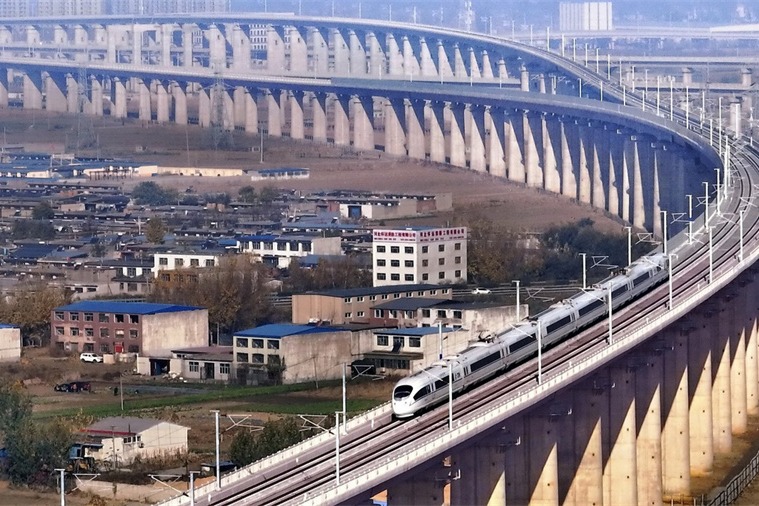Taming rocky, arid farmland pays off in Chongqing


In Pengshui Miao and Tujia autonomous county under Chongqing in Southwest China, villager Zhao Yong says that in Pengshui, patches of lush greenery have become increasingly common in the once rocky arid areas.
As one of the 100 key counties for comprehensive rocky desertification control in China's karst areas, Pengshui has served as a model for restoring and developing forest and grass vegetation since 2011 on its karst areas covering 3,437 square kilometers.
Currently, Pengshui has completed 7,740 hectares of artificial afforestation and 829 hectares of protected afforestation, helping enrich the local people and beautify the surrounding ecology, Zhao said.
Since 2018, the county's Wangjia village has integrated a program for rural vitalization, adopting a "rocky desertification control + industry +infrastructure" development model, to help enrich farmers.
Today, over 25 hectares of pepper trees stretch across the mountain valleys in Wangjia in Lujiao town, lush and green, with clusters of plump peppers hanging from the branches.
Villager Wang Manquan said: "You have to believe in technology when farming. Look, even this rocky land can grow a prosperous industry."
Previously, the local land was severely affected by rocky desertification, making "busy spring planting on the mountain but meager autumn harvesting" a norm for agricultural development, Wang said, adding that most people abandoned farming, turning the area into barren land.
The local government encouraged villagers to tame rocky desertification through forest and grass vegetation by relying on science, guiding them to plant peppers to revitalize rural land resources.
Wang said pepper trees have now taken root in the once unutilized land, achieving a goal of "greening" the rocky mountains and "turning stones into gold".
Villager Zhang Dequn, who works at the pepper planting base in the village, said, "Picking peppers is a manual job, earning me over 100 yuan ($13.9) each day."
Fertilizing, disinfecting, pruning and harvesting — and there is work every month, offering nearly 10,000 yuan in annual income for him, said Zhang, adding that "Working near home allows me to take care of my family while earning some extra money."
The local government has also thought of means to address the villagers' special problems.
Ren Chuan, head of the pepper planting base in the village, said: "With elevations ranging between 500 and 600 meters, the terrain in our base is quite varied, and many areas are inaccessible by vehicles. Previously, all materials for maintenance and harvested peppers were carried manually."
To help develop the pepper industry, Lujiao applied for and built a 4-kilometer road in 2022, along with over 2,000 meters of "small train" transport lines.
The equipment is easy to operate, with the transporter and track closely integrated by gears, capable of climbing slopes reliably and stably, fully meeting the automated transport needs of the 25-hectare pepper fields, Ren said.
At the base, villagers cut pepper branches, bundle them and load them onto small trains. The trains chug through rocky crevices, transporting the peppers out of the base to be processed at a drying factory.
Ren said that with the transport trains, one trip can replace 20 strong laborers, greatly enhancing their efficiency, adding that the base's net income is expected to exceed 50,000 yuan this year.
Besides pepper, Pengshui has also adhered to site-specific management, and planted protective groves such as cypress, cedar and pine on formerly barren land above 1,000 meters in elevation, other types of pine on sloped farmland between 500 and 1,000 meters or slopes of 25-35 degrees.
The county also developed specialty fruits such as loquats, peaches and plums on areas below 500 meters with good soil conditions, achieving ecological, economic and social benefits.
Countywide, Pengshui is witnessing achievements in other townships too. In the Ayi River basin, Mowei Mountain Scenic Area, Ayi Mountain and Anzi town, tourism resources have been developed.
And in Changsheng town's Sanhe Community and Yandong town's Heba village, mountain plums and yellow peaches are helping local farmers earn handsome profits.



































